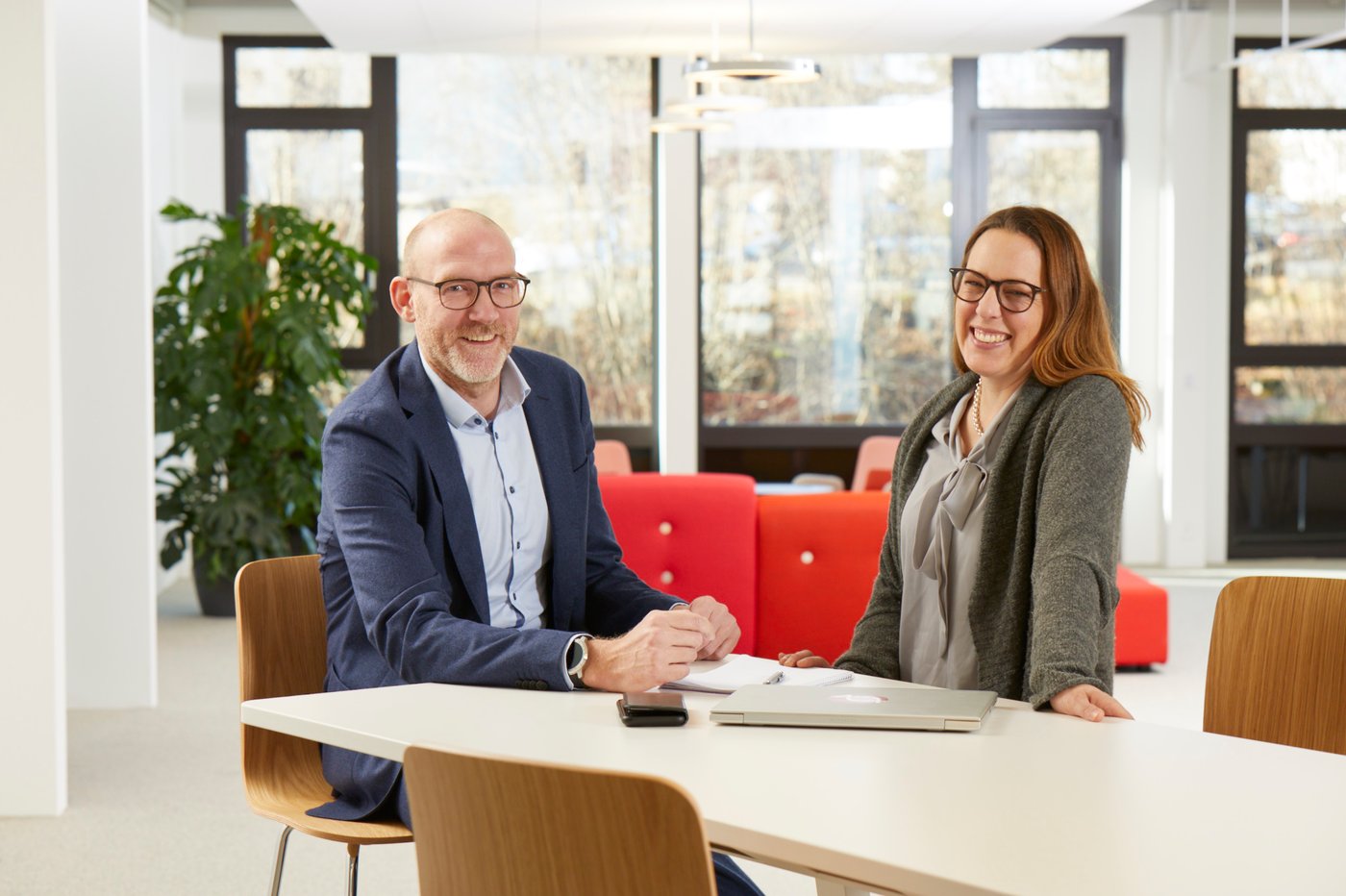Processes, the driving force in projects

Posted by:
Felix Westhoff
Published on:
Jun 29, 2022
Start-ups often perceive processes and documentation as obstacles that slow things down. Companies usually regard them as an impediment to flexibility. Andrea Wildhaber and Felix Westhoff are convinced that both of these fail to recognize the potential that lies in well thought-out processes that are anchored in the corporate culture. The Quality Manager and the Head of Projects and Quality Management explain in an interview how HSE•AG was able to design its process landscape in such a way to make daily work more productive for employees and clients alike.
Ms. Wildhaber, processes are a necessary evil for many developers. They would be happier and work more efficiently without them. Is that true?
Andrea Wildhaber: That may be the case in many companies, but at HSE we see it differently. From my point of view, the opposite is actually the case. Our processes enable everyone to work better and more efficiently. Among other things, they play a pivotal role in ensuring that everyone can benefit from the organization's knowledge. On the one hand, processes include the experience of the entire industry in the form of standards. On the other hand, our own learnings as HSE are reflected in our specific processes. By describing our know-how in our processes, the experience of individuals becomes available to everyone.
Does this mean that everyone at HSE always agrees with all of the processes?
Felix Westhoff: No, of course not. But if a process or sub-step bothers someone, this is a reason for us to review the procedure in question and change it if necessary. We motivate our employees to address issues to make our processes more effective and efficient. All our employees have the psychological security to be able to express their thoughts and considerations at any time. This is part of our corporate culture.
Are the processes also part of the HSE culture?
A. W.: Yes, they reflect our culture. We are organized in a structured and, at the same time, extremely flexible way. The basis for this is explicit trust in the competencies of each individual. The default setting is: If two people who know something about the subject make a decision, this is accepted by everyone, regardless of the hierarchical level of both people. And not only that. Mistakes resulting from such decisions are also accepted. They are viewed as an opportunity to learn. This culture enables us to make faster and more competent decisions.
Do you sometimes encounter resistance from clients to your process culture?
F. W.: Start-ups usually focus on the implementation of their product idea and rapid commercialization. This pushes the importance of processes and documentation into the background. In this case, we support the client with our experience and adapt flexibly to the needs of the start-up company.
Does this mean that you throw your process principles overboard at the client's request?
F. W.: That wouldn’t make sense! No, on the contrary, we analyze together with clients what is an absolute must in terms of processes and documentation, what would be advisable in addition to that based on our experience and what can be dispensed with. For example, everything required for an approval is essential. Our recommendations, which go beyond what is absolutely necessary, are based on our many years of extensive experience in this business. This means that a device remains evolvable and maintainable. How you go from an idea to a series product that can be maintained in the long term with minimal effort is not least a question of process experience.
Where specifically do you encounter the consequences of inadequate processes and documentation?
F. W. For example, in technology acquisitions. We have often experienced that inadequate documentation results in a massive amount of effort for post-documentation.
Are companies receptive to your recommendations?
A. W.: Our advantage is that we understand both the corporate and start-up perspectives from our own experience. This allows us to convincingly show our clients the likely consequences of their decisions. We were also once part of a large corporation. We were aware of the enormous importance of processes in the business client sector right from the start. At the same time, we are a young company with an efficient organization. When we left the corporation and started our own independent business, we thought about what was essential to include in the processes and which factors had what impact. Today, we have a flexible process landscape from idea to the end of a product's life cycle, which allows us to integrate seamlessly into the processes of both corporations and start-ups.
How should I imagine what integration into a client's processes involves?
F. W.: We always start with a so-called "Customer Project Realization Process". Within this framework, we analyze and define together with the client a variety of things such as the interfaces between the two quality management systems, we determine the basic procedure and the type and manner of the documentation and work out a project-specific organization and governance structure. This first step lays the foundation for the later success of the project.
